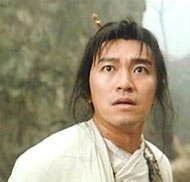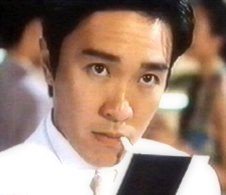Coup disrupts Japanese carmakers’ production
TOKYO: Production at Japanese automakers’ factories in Thailand was disrupted yesterday after the country’s armed forces seized power in Bangkok, with Nissan Motor Co, Mazda Motor Corp and others calling off work for the day.
Most Japanese automakers have major manufacturing and export bases in Thailand, which has welcomed foreign assemblers in a bid to build up a strong auto components industry.
“There has been a strong recommendation to stay indoors,” a Nissan spokeswoman in Tokyo said, adding that the company had confirmed that 33 Japanese employees at Nissan and affiliated companies were safe. She said a decision on whether to reopen its plants, on the outskirts of Bangkok, on Thursday would be made later.
Nissan’s two factories build about 200 Frontier pickup trucks, Teana sedans and Tiida compact cars a day.
Mazda, which owns a 50:50 joint venture factory with controlling shareholder Ford Motor Co in Rayong, about a three-hour drive from Bangkok, has also cancelled work for the day, including at its sales and regional offices in the capital.
Toyota Motor Corp, Japan’s top automaker and the number one seller in Thailand, had earlier told employees to stay at home but later lifted that order. A spokeswoman said the directive to stay away had not reached many of the workers, and the three factories had been operating as usual from their 7.30am start.
Rival Honda Motor Co cancelled work for the first shift at its car plant in Bangkok but said it planned to resume for the second shift starting at 8pm local time. Its motorcycle factory was operating as usual, a spokeswoman said.
Honda builds about 480 units of the Accord, City, Civic and other cars daily at the factory.
Truck maker Isuzu Motors Ltd, which has a major production base in Thailand, shut down its two truck factories outside Bangkok at 9am local time after 90 minutes of work. A spokesman said Isuzu was studying how to proceed today, gauging the flow of components and distribution capabilities.
Mitsubishi Motors Corp’s factory in Chonburi, southeast of Bangkok, was running as usual, reporting no impact on exports.
Singapore state investor Temasek Holdings, which controls Thailand's top telecoms group Shin Corp, said yesterday it was watching developments in Thailand, but had no further comment.
“We continue to monitor the situation, and at this stage it would be premature for us to comment,” a Temasek spokeswoman said in an e-mailed statement.
Shin was founded by ousted Prime Minister Thaksin Shinawatra. He and his relatives sold a controlling stake in the company to a Temasek-led consortium in January in a US$1.9bil deal that triggered a political crisis
United Overseas Bank, Singapore’s second largest bank, said yesterday it was committed to its investments in Thailand after the military took power in a coup and dismissed the government.
“United Overseas Bank is committed to being a long-term investor in Thailand as we see enormous economic potential there,” a spokeswoman said in an email. She said the bank expected “business as usual” for its operations.
The company did not say how much its Thai business contributes to earnings.
Stock broker CIMBGK Securities said in a note yesterday that UOB derives an estimated 3% of group earnings from Thailand, while 8% of its assets are based in Thailand.
UOB said its 300 ATMs and other self-service machines in the country were operating yesterday, which was declared a bank and market holiday by the military. According to the bank’s annual report, it has 155 branches in Thailand.
Tesco Plc, the UK’s biggest retailer, said its stores in Thailand and Hungary haven’t been affected by political unrest in the countries.
The retailer has 87 stores in Hungary, where protesters demanding the resignation of Prime Minister Ferenc Gyurcsany clashed with riot police for a second night. Tesco also has 220 outlets in Thailand.
Greg Sage, a spokesman for the Cheshunt, England-based company, said its stores in Budapest were on the edge of the city, away from the protests. He also noted the Thai coup had so far been peaceful. – Agencies
Most Japanese automakers have major manufacturing and export bases in Thailand, which has welcomed foreign assemblers in a bid to build up a strong auto components industry.
“There has been a strong recommendation to stay indoors,” a Nissan spokeswoman in Tokyo said, adding that the company had confirmed that 33 Japanese employees at Nissan and affiliated companies were safe. She said a decision on whether to reopen its plants, on the outskirts of Bangkok, on Thursday would be made later.
Nissan’s two factories build about 200 Frontier pickup trucks, Teana sedans and Tiida compact cars a day.
Mazda, which owns a 50:50 joint venture factory with controlling shareholder Ford Motor Co in Rayong, about a three-hour drive from Bangkok, has also cancelled work for the day, including at its sales and regional offices in the capital.
Toyota Motor Corp, Japan’s top automaker and the number one seller in Thailand, had earlier told employees to stay at home but later lifted that order. A spokeswoman said the directive to stay away had not reached many of the workers, and the three factories had been operating as usual from their 7.30am start.
Rival Honda Motor Co cancelled work for the first shift at its car plant in Bangkok but said it planned to resume for the second shift starting at 8pm local time. Its motorcycle factory was operating as usual, a spokeswoman said.
Honda builds about 480 units of the Accord, City, Civic and other cars daily at the factory.
Truck maker Isuzu Motors Ltd, which has a major production base in Thailand, shut down its two truck factories outside Bangkok at 9am local time after 90 minutes of work. A spokesman said Isuzu was studying how to proceed today, gauging the flow of components and distribution capabilities.
Mitsubishi Motors Corp’s factory in Chonburi, southeast of Bangkok, was running as usual, reporting no impact on exports.
Singapore state investor Temasek Holdings, which controls Thailand's top telecoms group Shin Corp, said yesterday it was watching developments in Thailand, but had no further comment.
“We continue to monitor the situation, and at this stage it would be premature for us to comment,” a Temasek spokeswoman said in an e-mailed statement.
Shin was founded by ousted Prime Minister Thaksin Shinawatra. He and his relatives sold a controlling stake in the company to a Temasek-led consortium in January in a US$1.9bil deal that triggered a political crisis
United Overseas Bank, Singapore’s second largest bank, said yesterday it was committed to its investments in Thailand after the military took power in a coup and dismissed the government.
“United Overseas Bank is committed to being a long-term investor in Thailand as we see enormous economic potential there,” a spokeswoman said in an email. She said the bank expected “business as usual” for its operations.
The company did not say how much its Thai business contributes to earnings.
Stock broker CIMBGK Securities said in a note yesterday that UOB derives an estimated 3% of group earnings from Thailand, while 8% of its assets are based in Thailand.
UOB said its 300 ATMs and other self-service machines in the country were operating yesterday, which was declared a bank and market holiday by the military. According to the bank’s annual report, it has 155 branches in Thailand.
Tesco Plc, the UK’s biggest retailer, said its stores in Thailand and Hungary haven’t been affected by political unrest in the countries.
The retailer has 87 stores in Hungary, where protesters demanding the resignation of Prime Minister Ferenc Gyurcsany clashed with riot police for a second night. Tesco also has 220 outlets in Thailand.
Greg Sage, a spokesman for the Cheshunt, England-based company, said its stores in Budapest were on the edge of the city, away from the protests. He also noted the Thai coup had so far been peaceful. – Agencies








0 Comments:
Post a Comment
<< Home